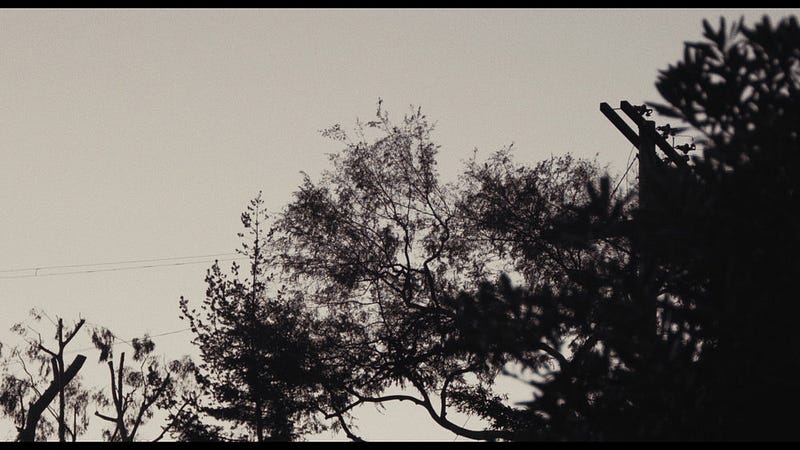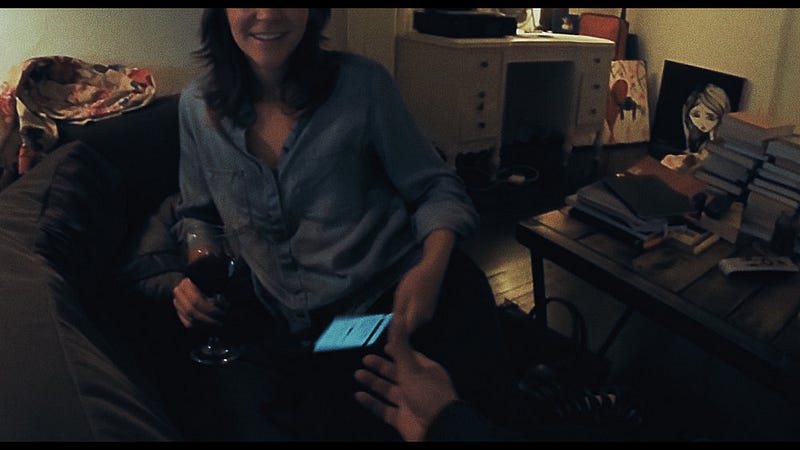Amir Motlagh’s MAN is a beautifully shot, prescient meditation on the nature of the human experience and of connectedness in increasingly disconnected times. The film moves through a mantra of daily activities before accelerating towards an emotionally impactful ending. I’m going to admit I wasn’t expecting to emotionally connect with this film the way I did, but the impact of the movie left me in tears, grateful for the experience.
It’s hard for me to express just how important I think its message is. COVID has taught us all the challenges of isolation, interaction — and, seemingly paradoxically, isolated interaction — and MAN is adept at showing the profound absurdity of it. I’ve been thinking about what, exactly, to say about this movie after sitting with it. I don’t know how to talk about how or why it moved me without getting into particulars, and I don’t think that fits with the entire spirit of the film. The longer I’ve pondered it, the more the themes and imagery have expanded in my mind, and trying to pin them down would be foolish.
Some stories are in the experiencing.

The opening shots of MAN move between trees, homes, and power lines before opening up into a shot of Los Angeles as we listen to Arman’s day begin. In a few moments, we are attached to him and will spend a majority of the film connected to him via the camera itself as he goes through his day.
Arman (Amir Motlagh) works from home in the Laurel Canyon in the Hollywood Hills. He mainly interacts with people via his computer and other varied screens around him. In 2018, Arman’s life at the Laurel Canyon, separate from most except for his connection through screens, would have seemed far more strange than it does now. In the post-lockdown world, this experience is much more common, which makes a lot of the feelings explored in the movie something that we can all relate to.

For most of the movie, Arman’s main physical companions are his dogs and voices emanating from screens that arise from various interruptions. The strange intrusiveness of unwanted connections amid the struggle for meaningful connection is one of the key feelings within the film — and something that all of us are more readily able to relate to thanks to the realities of our current lives.
What makes MAN extraordinary is how much it gives back to the viewer after asking so little. A small investment rendered hours of consideration and contemplation of how the movie was so effective at presenting the strange world we inhabit — where all of our social connections have the feeling of parasocial, and leave us too soon and before something with more depth can be created.

The visual and emotional world of MAN is extraordinary, and the first part of the film created a meditative state so that by the time disarming and charming Des (Rachel Sciacca) appeared, I was as fascinated and curious about her as Arman was.
MAN is a fascinating movie that turns the message on the viewer, asking about the essence of relationship our relationship to technology and how it dictates, shapes, and shifts our other relationships. It is one of a trilogy of movies called the “Three Marks, Too Many Signals” series. Given the impact I felt from MAN, I’ll be sure to check out the others.
If you dig slow cinema and films that allow you to meet interesting characters while asking you important questions about the nature of technology’s impact on our relationships and selves — MAN might be exactly what you’re looking for in a movie!Watch MAN Online | Vimeo On Demand
MAN is a vertité-style day-in-the-life story about a computer programmer who lives a secluded existence in L.A.’s…vimeo.comMAN
MAN is rated R.